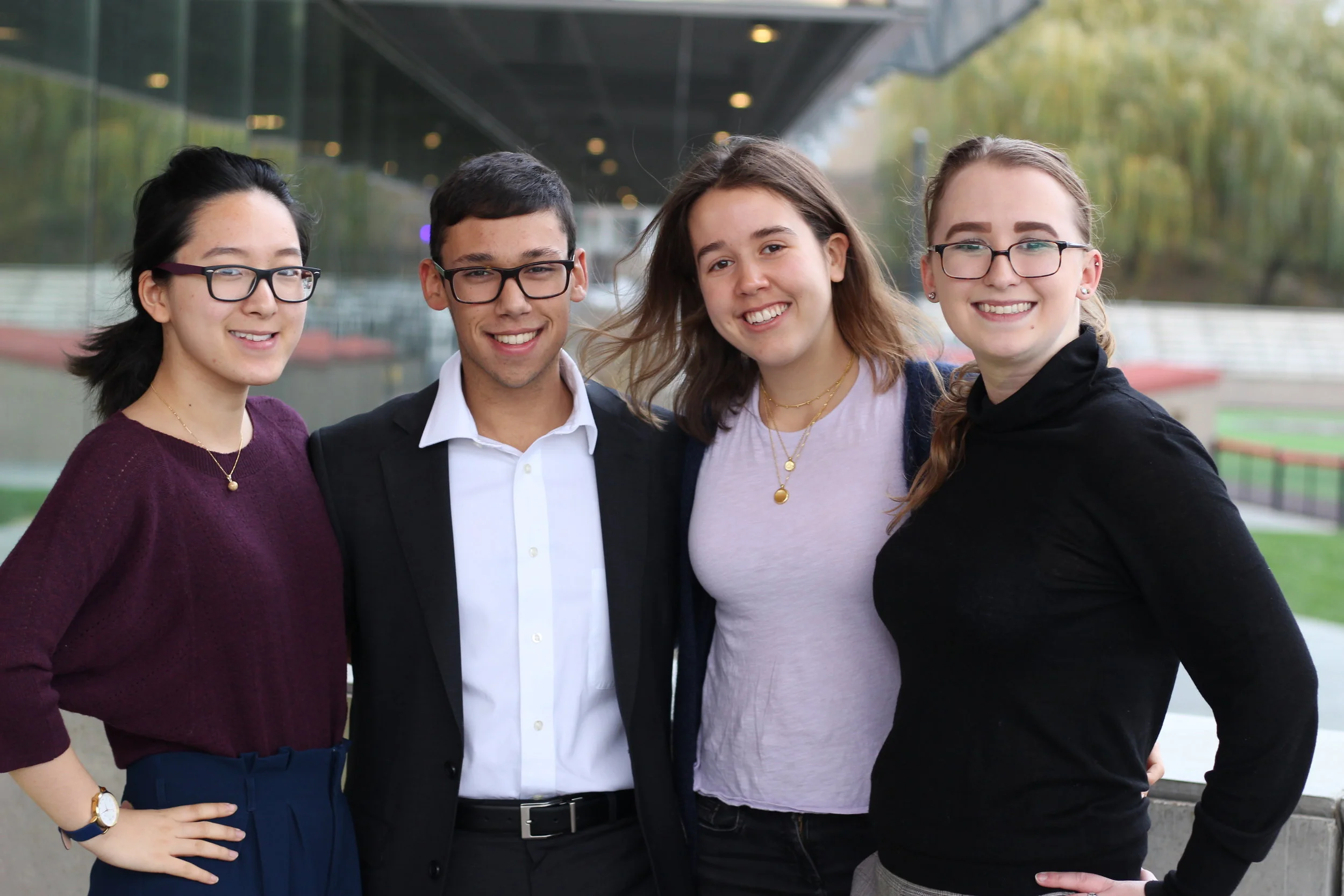3 Day Startup: Learning by Doing
Entrepreneurship is a field I’ve been intrigued by for quite some time, mainly due to its ambiguity.
Electrical engineers know that they need to learn about analog devices and lab techniques if they want to pursue a career in circuitry. Computer scientists know that learning Python and Java will get you on any company’s payroll. But for entrepreneurs, wha't’s the process? There are so many stories of college dropouts becoming multi-millionaires with a single, life-changing idea, but very few that are relatable to the average 20-something.
Founders are typically a combination of extremely intelligent, extremely wealthy, and extremely lucky, but that’s not a defined formula that everyone can tap into.
And that’s where 3 Day Startup came in.
A worldwide program, 3 Day Startup gives a select group of students the opportunity to brainstorm company ideas, learn important business concepts, and work with other people who also exhibit an entrepreneurial spirit.
First our group, comprised of 38 Cornell students across 6 colleges and 18 majors, was randomly grouped into brainstorming teams. These teams were asked to come up with 2-3 ideas and then pitch them to the rest of the program, with a chance to hear and respond to feedback. These ideas ranged from farm-to-table Ithaca beef jerky and smart closets to travel planning websites and vote calculators.
I personally pitched the concept of in.bloom, the product I had worked on with several other Cornell students at the LCL Makeathon last semester. As a refresher, in.bloom was a two-pronged approach to instilling positive phone habits. There was a phone case, lined with touch sensors, that would very loudly inform the user (with lights and sound) that they’ve been holding their phone for too long. The other prong was a mechanical flower pot that would serve as a visual reminder for the user to contact their loved ones; if they’ve called their family, the flower would “grow”, otherwise it would lay over and “die”.
People were truly interested in the concept of a hardware device to combat a software-based addiction and so it was voted in, along with five other ideas, to be further developed over the course of the three day long program.
Next was team selection. Participants mingled with the size idea-generators to see what idea drew them in the most, whether that was based on the skills the team needed, the vision of the team leader, or anything in between. It was slightly awkward when the majority of the room drifted over to the two fashion-related ideas and not my own but that slight delay ended up being very worth it.
This was our team. A bit on the small side, but that didn’t stop us from being a force of innovation and collaboration. From left to right, there’s Theresa, Ian, Lil, and (of course) me! Each member brought a new perspective to the table and the fact that we were all tech majors (computer science, information science, and electrical and computer engineering) added a layer of understanding to the technical necessities for the product.
The first module we tackled was developing our Lean Canvas. This involved identifying our primary market and the issues we would be trying to solve, the skeleton of our solution, and our various revenue streams. Since this was an idea that, at its core, had been slightly fleshed out last February, answering these questions was relatively simple. The only dilemma we had was whether we felt the two-pronged aspect of the idea was something that was needed in the market, a dilemma that would be solved in the second module: customer discovery.
Customer discovery allowed us to tap into our approximate market and understand their needs. That market was college students and those needs were phone over-usage, at an average of three hours a day, and a lack of self-control to fix those habits. We came up with non-leading questions that would give some insight into our customer’s life and how their electronic devices fit into that. Through over 100 interviews, we determined that contacting loved ones wasn’t a huge issue—this led to us cutting the visual reminders so as to focus on the phone case.
The next session involved meeting with several upperclassmen mentors, with career focuses in design, software, and business. Their insight, and our discussion sessions as a team after every mentor, helped us fully refine our design and understand what our focus for the product needed to be.
We made a rough pitch presentation, touching on everything from problematic statistics to the go-to-market strategy, to get some feedback on our approach and our reasoning. A final module on pitch tips helped us put the finishing touches on our deck and our explanations. This led to final presentations from each team at the conclusion of the program. We got to hear how all of the ideas had been refined from their inception earlier that weekend, giving us the ability to understand the subtle journey each startup idea needs to embark on before even being considered for market.
Did I have a ton of homework to do this weekend? Yes.
Did I have fewer hours of sleep a night? Yes.
Did I skip on on-campus concerts, events, and chill hangouts? Yes.
On the other hand…
Did I meet some incredible team members? Yes!
Did I feel excited about where our idea ended? Yes!
Do I want to further pursue this idea (and maybe others!) as my own entrepreneur? Y E S!
All in all, 3 Day Startup was an amazing program where I truly got to learn about startups by doing my own.





